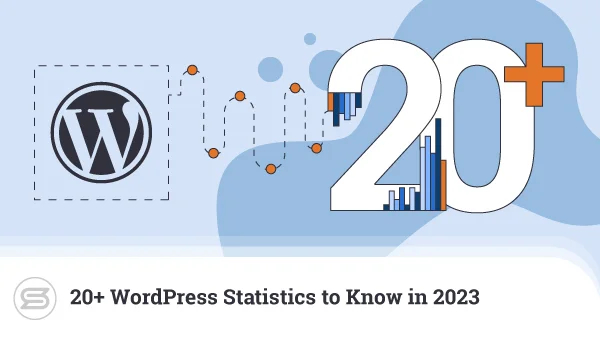Securing a website from cyberattacks can be challenging. Thankfully, there are many security plugins for WordPress available for that. While plugins shouldn’t be a replacement for security best practices, they can certainly assist in hardening the walls around your website…
Why is Cybersecurity so Important?
There are more than 1.8 billion websites online as of 2021. This booming population has seen a disproportionate rise in cyber attacks. Reasons can vary – from random chaos to intentional data theft – but the fact is that cybercriminals are more active than ever.
In the first three quarters of 2020 alone, there were almost 3,000 known website security breaches. If you consider this number doesn’t count lower-profile incidents involving smaller or personal sites – the total is much more staggering.
Anyone running an online business knows that the costs of a cybersecurity incident are always high. Aside from the obvious financial losses, the negative impact on your brand reputation can be irreversible.
Why is WordPress Security Important?
WordPress powers more than a third of all websites today. This popularity stems from the many benefits the platform offers, such as ease of use, flexibility, and control. Unfortunately, that popularity has led to it bearing the brunt of cyberattacks.
WordPress itself comes with many security features and gets regular updates that include security patches. Still, this isn’t enough, so WP website owners should always look to improve their defenses. Failing to do so can lead to severe consequences.
To get an idea of the scope of the matter, Google quarantines over 10,000 WordPress websites a day. These sites are put on a blacklist and marked insecure – something which is likely to deter any visitor from coming back.
WordPress Security Concerns
Aside from common potential security problems, WordPress comes with a few native risks as well. Not all of them arise specifically from the platform but are inherent to web applications as a whole.
Some WordPress vulnerabilities include:
- Brute force attacks
- Cross-site scripting (XSS)
- SQL injections
- File exploits
- Phishing scams
Improving Your Security with a WordPress Plugin
Although you can address many WordPress security vulnerabilities on your own, plugins offer a more convenient option. For the less technically inclined, they can be a vital lifeline in keeping WordPress sites safer.
WordPress security plugins work more quickly than having to fix potential security loopholes on your own. As with other plugins, you simply use the backend dashboard to install and configure them.
The Best Security Plugins for WordPress
Now that you know the significance of WordPress security plugins let’s take a closer look at some of the best. From individual developers to renowned cybersecurity companies – there are many options to consider.
Sucuri
Sucuri is a well-known name in the cybersecurity industry. It produces a range of solutions, many of them specific to the WordPress platform. Such products help WP site owners actively monitor their websites to prevent hacks.
The WordPress security plugin from Sucuri has many notable essential features. These range from security auditing to file integrity monitoring and even optimizations against known vulnerabilities. Aside from attack prevention, it also has a post-hack checklist in case your website is ever breached.
It is one of the most comprehensive WordPress security plugins around and widely respected. Despite its immense versatility, Sucuri is also suitable for relative newcomers to website security. For example, newbies can make use of their 1-click hardening feature to instantly boost security.
There is a free version of the Sucuri WordPress plugin, but it comes with a much more limited feature set. If you want better protection, expect to pay from $199/year and more, depending on how you use it.
Sucuri Pros:
- Extremely comprehensive features
- Repairs SEO spam
- Malware detection and removal
- Strong product support
- DNS-level firewall
Sucuri Cons:
- Limited free version
- Some features can be expensive
Wordfence
Wordfence is another widely popular WordPress security plugin that’s easy to use and quite comprehensive. It brings together multiple security aspects and includes a malware scanner, firewall, live security scanning, brute force protection, and more.
The plugin is so simple that beginners can leave most settings at their default. If you’d like to tweak it a bit, you can choose to do so from either individual panels or their global options menu.
Wordfence offers real-time protection, and aside from centralized data, it also takes advantage of collective information gathered from its extensive network of users. The cherry on top of the pie is the in-built firewall, which prevents many common breaches and attacks.
Anyone can use the free version of Wordfence. More advanced features are only available in the Premium version, which starts at $99/year for a single website.
Wordfence Pros:
- Convenient all-in-one security plugin
- Free version offers solid first-level defense
- Support available for malware removal
- Relatively easy to use for beginners
- Includes a powerful firewall
Wordfence Cons:
- Free version users get minimal support
- Can have a significant site performance impact
Jetpack
Jetpack isn’t a dedicated WordPress security plugin per se. It’s an all-rounder that improves various aspects of WP sites, such as performance, marketing, and more. It just so happens that security is one area covered under the plugin’s wide umbrella.
Most of Jetpack’s security features fall into the prevention and monitoring categories. For example, it keeps an eye on your site and lets you know if there is a service outage. It also helps to protect your logins by offering secure sign-on and brute force protection.
Unfortunately, many of Jetpack’s more integral features, where cybersecurity is concerned, require users to have a paid plan. Some of the Pro features are anti-spam, site scans, and backup – all essential to your online project in the long term.
If you’re launching a new site, Jetpack can be a good fit as a jack-of-all-trades. However, for those seeking a pure cybersecurity solution, it comes in slightly overweight.
Jetpack Pros:
- Convenient all-in-one solution
- Downtime monitoring
- Brute force protection
- Secure sign-on
- Malware scanning
Jetpack Cons:
- Less robust than dedicated solutions
- Key features require paid plan
BulletProof Security
Having a WordPress plugin that’s regularly updated is essential. That fact goes double when it comes to security plugins like Bulletproof.
The extension is easy to set up and quite impressive at what it does. Even the free version offers comprehensive protection like security monitoring, malware scans, backups and restores, anti-spam filters, and anti-hacking utilities.
BulletProof also comes with a maintenance mode that safeguards your site during updates. This is when your account is most vulnerable, even if you can’t see it. Customization options are there in spades as well, making this a very flexible yet manageable choice.
BulletProof Security Pros:
- One-click setup
- Malware scanning
- .htaccess protection
- Security logging
- DB Table prefix changer
BulletProof Security Cons:
- Advanced features can be challenging to configure
iThemes Security Pro
This plugin is a little off the norm since a cybersecurity company didn’t develop it. Instead, iThemes Security Pro comes from a developer that specializes in WordPress themes.
Nevertheless, iThemes has quite an impressive reputation for building decent plugins. The Security Pro plugin comes with several necessary features that all WordPress site owners should have. You will get brute force protection, file change detection, and user lockout capabilities.
The plugin is suitable for new users as well. It offers convenient one-stop dashboard access for overall site security and health monitoring. Fixing potential issues with the plugin is easy as well, thanks to a highly user-centric environment.
iThemes Security Pro Pros:
- Security grade monitoring
- Quick fix capabilities
- Very easy to use
- Two-factor authentication
- Hide user logins and admin page
iThemes Security Pro Cons:
- Relatively high resource consumption
- May need tweaking to work correctly
All in One WP Security & Firewall
In many ways, All in OneWP Security & Firewall takes a very user-centric approach to WordPress security. Much like iThemes Security Pro, the tool offers a one-stop dashboard that lets users monitor their site security health at a glance.
There are comprehensive options for both site and user security included. The examples here include user account protection, login security, advanced spam filtering, and more. All in One WP Security & Firewall also helps owners defend their WordPress database and file system.
All in One WP Security & Firewall Pros:
- Very comprehensive security plugin
- Includes firewall functionality
- Spam prevention
- High plugin compatibility
- Regularly updated
All in One WP Security & Firewall Cons:
- Limited support channels
How to Choose your WordPress Security Plugin
Before hunting for a security plugin to add to your WordPress site, you need to plan your strategy first. Knowing your needs can help you find a better fit for your usage model while even saving some money in the process. Some key areas to consider when assessing a plugin include:
- Features – Know the various categories security plugins fit into and match that with what you need for your site. The most significant concern is whether or not to choose a dedicated security plugin or something like Jetpack, which does a bit of everything for website owners.
- Price – Not all WordPress security plugins are free, but many come in a freemium model. This model sees some basic functionality coming for free, with more advanced features in the paid version. Consider how big a gap there is between free and premium releases of various plugins.
- Ease of Use – If you aren’t the most tech-savvy user, look for a plugin that is either easy to use or offers enough support to help you get acquainted with the tool.
- Support – Some plugin developers offer handy support features. For example, they may offer to clean up any security breaches that happen on your site. Others may limit interaction with users to support forums and new version releases. Make sure to secure a plugin from a trusted source.
ScalaHosting WordPress Security
While security plugins can be helpful, always remember that aside from your website, your hosting server can be vulnerable as well. Not all providers are equal, and the ScalaHosting Team does its best to offer the ideal environment for secure WordPress websites.
Your hosting plan plays a huge role in terms of security. That’s why we recommend Virtual Private Server (VPS) plans as its environment proves much safer than the shared hosting environment. Thanks to our full account isolation, your site won’t be affected by any other user on the same server.
But that’s far from all.
SShield is a tool that was developed in-house and is a magnificent helper for real-time cybersecurity defense. So far, the proprietary service has been able to provide an impressive 99.998% success rate in blocking suspicious activity, promptly alerting website owners of the dangers.
SWordPress Manager, on the other hand, helps you with preventative measures. The plugin gives you a competitive edge when it comes to core updates and installation management for WordPress sites.
Conclusion
Although WordPress is a solid application, its out-of-the-box security can always benefit from some improvements. Cleaning up a hacked WordPress site isn’t fun (or always possible), and the potential impact can be grave. Beef up your security with a WordPress plugin, and remember to keep an eye on security best practices.
Frequently Asked Questions
Does WordPress have security issues?
The popular CMS is well-developed and doesn’t have any obvious core vulnerability issues. However, its modular system offers cybercriminals many avenues of approach depending on your choice of theme and plugins. That’s why it’s always best to fully protect your WordPress website, even if you’re not making money out of it.
Can WordPress be hacked?
Like any application, WordPress is also hackable. In fact, there isn’t anything in this world that’s connected to the Internet which cannot be breached. Instead of total prevention, keep in mind the deterrent approach when considering your security options.
How can I keep my WordPress site secure?
There are many ways you can improve your WordPress site security. These include using a security plugin, manually hardening your installation, keeping your plugins and core up to date, and more.
Why is my WordPress site being attacked?
There are many reasons why websites today get attacked. Some attacks are simply carried out with the intent to disrupt, while others may be trying to steal data such as financial information. WordPress is responsible for powering over 30% of all websites worldwide, which naturally makes it one of the most lucrative targets of cyber attacks.



